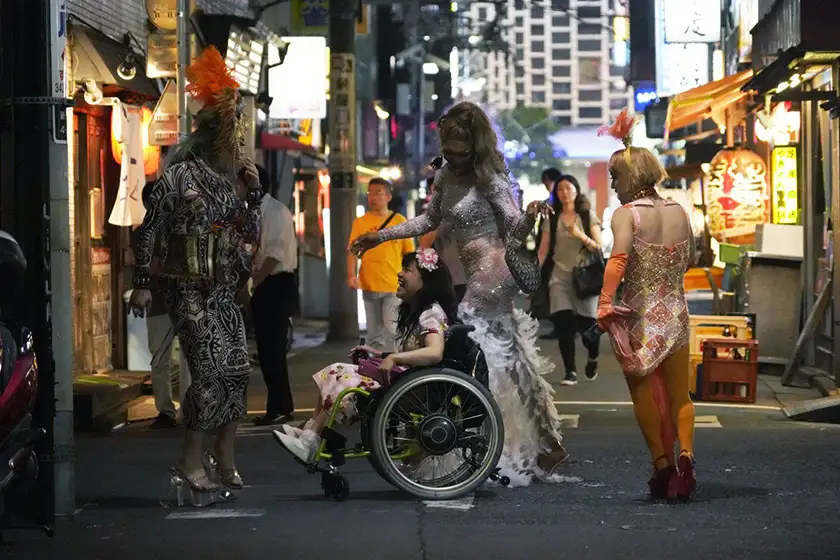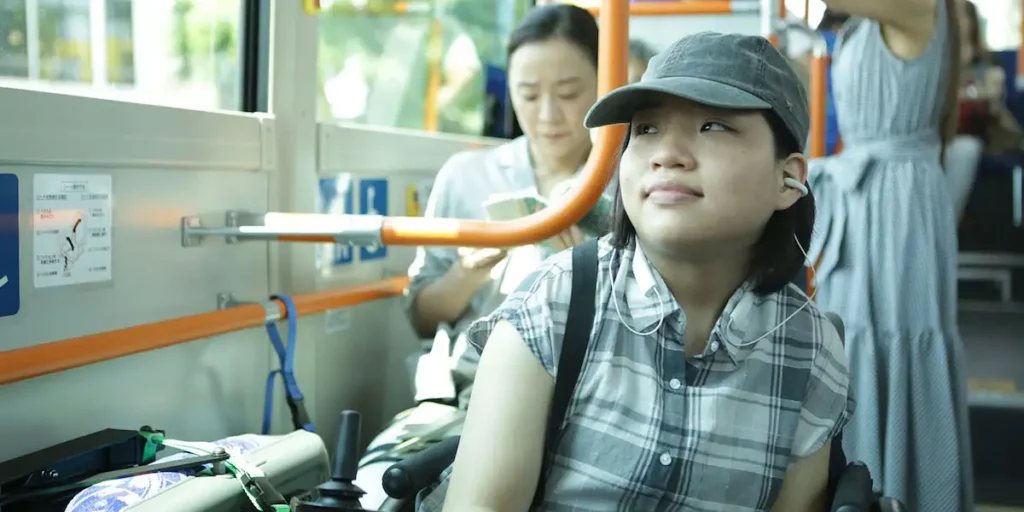37 Seconds tells a somewhat conventional story with exceptional grace and empathy, challenging harmful stereotypes along the way.
There is a lot that stands out about writer/director Hikari’s debut feature, 37 Seconds. First of all, her film centers around Yuka, a manga artist with cerebral palsy. Mei Kayama, the actress who plays her, has cerebral palsy in real life. This fact does not only add to the film’s realism, but it is also refreshing in its representation. Hikari frames the shots so the camera is often at eye-level with Yuka, which helps humanize her in the eyes of the viewer and places us in relation to her. This seemingly minor decision conveys the film’s immense empathy toward Yuka and challenges biases society has toward people living with a disability.
We are on equal ground with Yuka throughout, never looking down at her, instead often seeing the world through her eyes. We see people around her dismiss her, act ashamed of being associated with her, and demean her. The film shows that there is a pervasive discriminatory attitude in society (specifically Japanese society) against people with disabilities. Smaller moments such as when Yuka, who uses a wheelchair to get around, is confronted with a ledge in the sidewalk take on larger significance. We see the daily inconveniences she faces and are shown how society wasn’t made with her in mind.
Narratively, the film relays Yuka’s sexual awakening and her journey for personal independence. She has lived all her life at home under the gaze of her domineering and controlling mother, who treats Yuka as if she is not capable of doing anything. Yuka yearns for more freedom, and when told by the boss of a manga company to resubmit her work after having new life experiences, Yuka starts to encounter the world on her own. While it is unfortunate that the inciting incident comes from a random person telling Yuka what she should do with her life, Yuka ultimately takes this advice and turns it into her own personal search for self-actualization.
What follows is a fairly straightforward story of sexual discovery and belonging, but Yuka’s character is such a compelling figure that the predictability of the narrative doesn’t become much of an issue. Additionally, Mei Kayama imbues Yuka with incredible passion, longing, and hidden pain that there is never a moment where you would not be rooting for her.

One of the most surprising aspects of the film is it features brief interludes that present Yuka’s animations coming to life. Each one is dazzling, especially a black and white presentation of a sexy sci-fi epic that Yuka works on, showing where she draws inspiration from the world and how that translates into her drawing style. This scene is edited like a manga, the real world and Yuka’s animated world existing side by side in different frames. Occasionally, we see the real world morph into the black and white style of Yuka’s drawings. It is invigorating to see how Yuka’s mind and imagination work, and witnessing her creative process play out on-screen provides another welcome layer of insight into her character. These moments of animation also bring an appreciated stylistic shift to the film’s more traditional realist style.
While 37 Seconds is consistently emotionally-engaging, it does falter in its storytelling. A third act shift relies too much on conventional melodrama, introducing a sudden search for a long-lost relative that feels overly familiar. In addition, the peripheral characters all feel somewhat underdeveloped, especially considering how well-rounded Yuka is. While her mother is given some development over the course of the film as she learns to see Yuka as a full person, other characters such as Yuka’s friend Mae, and her boss Sayaka, are only given a single defining characteristic. Mae is kind, Sayaka is selfish, and so on. However, even if the story is less than perfect, the film’s heart is always in the right place, and 37 Seconds ends up being a graceful, vital character study.
37 Seconds is now available to watch on digital and on demand.

